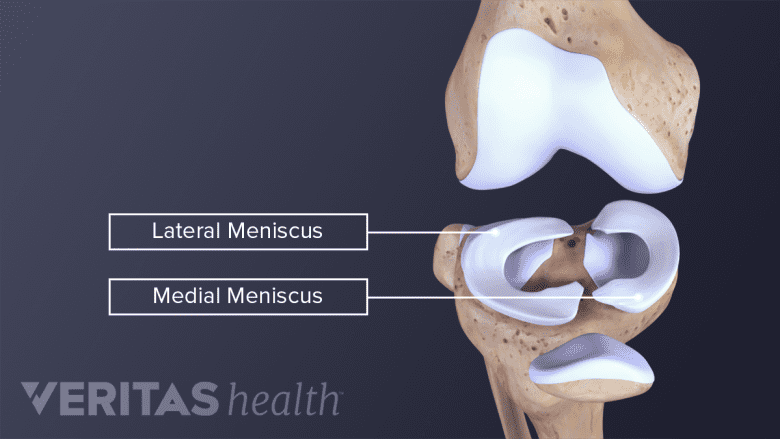Most commonly, meniscal tears are caused by some sort of traumatic injury or sports injury. An unnatural over rotation of the leg can cause the cartilage of either of the menisci to tear either fully or partially.
In This Article:
Sports Injuries and Meniscal Tears
Impact on the side or front of the knee can lead to a tear in either the lateral or medial meniscus.
Common causes of a meniscal tear in sports include:
- Impact on the side or front of the knee, causing the knee joint to move to the side, can result in a tear of either menisci and occasionally the anterior cruciate ligament (ACL), as well. An athlete might experience this when diving onto a basketball court for a loose ball or getting tackled in a football game.
- Over rotation of the knee due to planting or cutting on the leg too aggressively can cause a tear in either of the menisci. This type of pivoting is common in sports such as soccer, basketball, and football.
- Rapid stepping or squatting on an uneven surface can cause disproportionate force on the knees, leading to tears or ruptures of the meniscus. This movement might occur while trail running in cross country, running football drills, or falling awkwardly in lacrosse.
- Unexpected, quick force can lead the knee joint to flex too far back and tear the meniscus. For example, colliding with the leg of another basketball player while coming down from a rebound might cause this.
Degenerative Knee Causes of Meniscal Tears
Degenerative conditions like knee osteoarthritis can lead to tears in the knee’s menisci.
As we age, the cartilage that the meniscus is made of becomes less resilient and rubbery, allowing for injury even when there is less dramatic activity or impact. People with a degenerative joint condition, or who engage in activity or professions that involve a lot of squatting up and down, are susceptible to developing a meniscal tear.
- Degenerative conditions, such as knee osteoarthritis, can also cause tears in either of the menisci over time. This sort of condition weakens the cartilage of the meniscus, allowing it to be torn with greater ease.
- Occupations or activities that involve a lot of squatting up and down can strain the mesiscus cartilage, especially over time. For example, plumbers and carpet installers are required to squat throughout the day and are more susceptible to knee injuries such as a meniscal tear.







